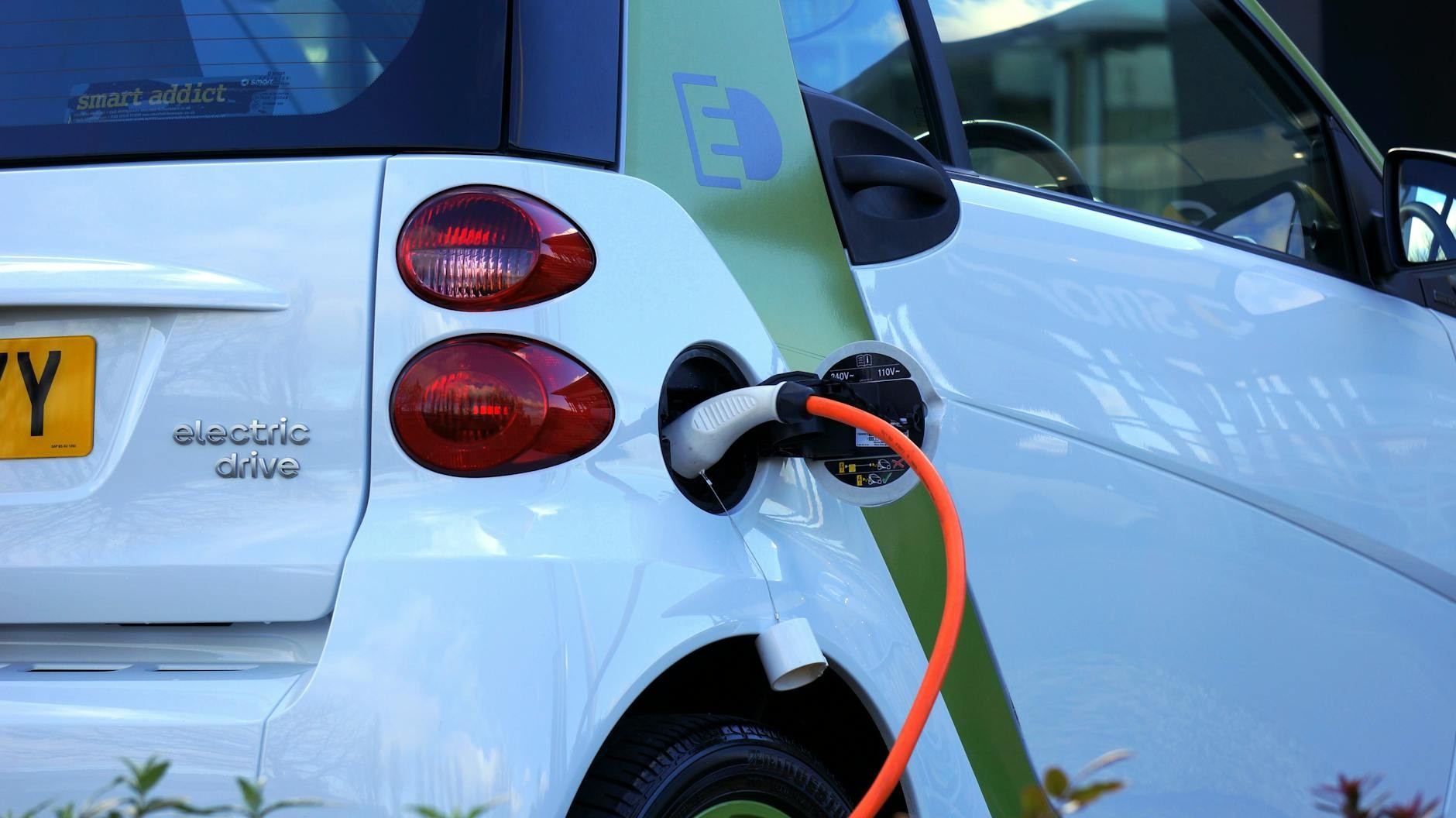Are you considering buying a new car and find yourself wondering: Are Hybrid Cars Worth It? You’re not alone. Like many car buyers, I recently spent a considerable amount of time car shopping, test driving vehicles, and navigating the often-pushy sales tactics. One thing that consistently stood out was the higher price tag on hybrid models compared to their gasoline-only counterparts. This naturally leads to the question: do the long-term savings of a hybrid car actually justify the initial extra cost? My finance-oriented mind immediately jumped into action, seeking to uncover the real financial implications of choosing a hybrid.
In a previous article, I explored the true total cost of car ownership, breaking it down into six key categories. These categories are essential for understanding the overall financial picture of owning any vehicle:
- Purchase Price and Depreciation: The initial cost and how quickly the car loses value.
- Financing: Interest rates on car loans.
- Maintenance and Repair: Routine upkeep and unexpected fixes.
- Fuel: Gasoline or electricity costs.
- Registration and Inspection: Government fees.
- Insurance: Premiums to protect against accidents and theft.
Factors like financing, registration, and inspection costs are generally consistent across both traditional gasoline and hybrid cars. However, significant differences emerge in purchase price, depreciation, fuel costs, maintenance, and potentially insurance. This brings us back to our core question: is investing in a hybrid car truly a financially sound decision in the long run?
(P.S. On a slightly different note, I recently opted to lease a car, and I’ve detailed my reasoning in another article explaining why leasing was the right choice for me.)
The Time Value of Money: Why Today’s Dollars Matter More
There’s a timeless principle in finance, often summarized by the proverb “a bird in the hand is worth two in the bush.” In financial terms, this translates to the concept of discounting: money received today is inherently more valuable than the same amount received in the future. We applied this principle previously when analyzing mortgage costs, and it’s equally relevant when evaluating hybrid cars.
Choosing a hybrid car means a larger upfront investment today. The anticipated savings, primarily in fuel costs, are realized gradually over the years of ownership. However, these future savings are diminished in value compared to the immediate extra expense.
The crucial question becomes: do the accumulated long-term savings in operating costs sufficiently outweigh the higher initial purchase price and potential depreciation differences? To answer this, we need a structured approach:
- Quantify Cost Differences: Identify and compare the specific cost variations between gasoline and hybrid cars. This includes sticker price, depreciation rates, fuel expenses, insurance premiums, and maintenance costs.
- Apply a Discount Rate: Determine a suitable discount rate to account for the time value of money and apply it to the projected future savings.
By conducting this analysis, we can make an informed decision about whether a hybrid car is truly a worthwhile investment.
Choosing the Right Discount Rate for a Hybrid Car Analysis
The average lifespan of cars on American roads is currently around 12.5 years as of 2022. However, the typical car owner tends to keep their vehicle for approximately 8 years before selling or trading it in. For our analysis, considering a 10-year ownership period provides a reasonable middle ground and a long-term perspective.
A winding road ahead, symbolizing the long-term financial journey of car ownership.
To determine the discount rate, we need to consider the opportunity cost of capital. Warren Buffett, a renowned investor, often uses U.S. Treasury bond rates as a benchmark discount rate, representing a “risk-free rate” of return. This approach is sound because it allows us to compare the potential return of investing in a hybrid car (through future savings) against the guaranteed return of a safe investment like Treasury bonds. If the savings from a hybrid don’t outperform a risk-free investment, its financial advantage becomes questionable.
As of February 2024, the 10-year U.S. Treasury rate hovers around 4.3%. This rate helps us understand the present value of future savings. For example, as illustrated in the table in the original article, $74.47 invested today at 4.3% annual interest would grow to $100.00 in seven years. Therefore, saving $100 on fuel in seven years due to a hybrid is financially equivalent to having $74.47 in hand today. This reinforces the “bird in the hand” principle.
Calculating Hybrid Savings: A Real-World Example
To make this analysis concrete, let’s compare two specific car models. Given the current family needs (soon to be a “Baby on Board”), the Kia Sorento has been on my radar. Let’s delve into a comparison between the all-gas Kia Sorento and the hybrid Kia Sorento models.
The detailed calculations and assumptions are available in this spreadsheet. Feel free to explore the numbers and customize them to your own situation by creating a copy of the Google Sheet: File -> Make a Copy.
Initial Cost and Depreciation
The base model of the gasoline-powered Kia Sorento starts at approximately $31,990. The hybrid version, however, begins at a higher price of $36,990.
According to iSeeCars, both the gas and hybrid Sorento models are projected to depreciate at a similar rate of around 53% in the first five years of ownership. This means the higher initial cost of the hybrid directly translates to a larger dollar amount lost to depreciation over time.
Fuel Efficiency and Gas Expenses
To estimate fuel costs, we need to consider:
- Annual Mileage: The average American drives between 13,000 and 15,000 miles per year. We’ll use 14,000 miles as our average.
- Miles Per Gallon (MPG): The Kia Sorento Hybrid AWD achieves around 35 MPG, while the all-gas AWD Sorento gets about 24 MPG.
- Gas Price: The average U.S. gas price is currently around $3.27 per gallon.
Based on these figures, we can calculate annual fuel expenses:
- Sorento Hybrid: Approximately $1,308 per year in gas costs.
- Gasoline Sorento: Approximately $1,907 per year in gas costs.
Insurance Premiums
The average annual cost for “full coverage” car insurance is around $2,000, but this can vary widely.
Insurance rates are highly personalized, influenced by driving history, location, and coverage levels. While using a general average provides a starting point, individual quotes are essential for accuracy.
For our example, we’ll use $2,000 per year for the gasoline Sorento. It’s often cited that hybrid cars incur slightly higher insurance costs, averaging around 7% more than gasoline models. Applying this, the estimated annual insurance cost for the Sorento Hybrid becomes $2,140.
Maintenance and Repair Costs
Many sources suggest that hybrid cars tend to have lower maintenance costs compared to gasoline cars. This is attributed to features like regenerative braking (reducing brake wear), the absence of alternators and starters, and often simpler transmissions.
However, concrete data quantifying these maintenance savings is surprisingly difficult to find. If you have reliable data on hybrid vs. gasoline car maintenance costs, please share it!
In the absence of definitive data, we’ll use an average annual maintenance and repair cost of $600 for both models, acknowledging that this is an approximation. We also assume that repair costs tend to increase as cars age and warranties expire.
Total Cost of Ownership: Hybrid vs. Gasoline Sorento Over 10 Years
Over a 10-year ownership period, and accounting for the time value of money using our discount rate, the estimated total cost of ownership for the Kia Sorento Hybrid is approximately $55,662 (in present-day 2024 dollars). This includes depreciation, discounted fuel costs, insurance, and maintenance.
For the gasoline-powered Sorento, the total cost over 10 years is estimated at $56,491.
The difference is relatively small, with a slight financial advantage for the hybrid model in this specific scenario. Breaking down the cost categories reveals:
- Depreciation: The hybrid costs approximately $3,000 more due to its higher initial price, even with similar depreciation rates.
- Fuel Savings: The hybrid saves roughly $4,997 in gasoline expenses over 10 years due to its superior fuel efficiency.
- Insurance: The hybrid costs an estimated $1,167 more in insurance premiums over 10 years.
While this analysis focuses primarily on the financial aspect, it’s crucial to acknowledge the environmental benefits of hybrid cars. Hybrids generally produce fewer emissions, contributing to cleaner air and reduced carbon footprint. Assigning a monetary value to these environmental benefits is complex but should be considered in a holistic evaluation.
It’s essential to remember the concept of “average pilot syndrome”. Averages provide a useful framework, but real-world scenarios are unique. You must personalize this analysis to your specific circumstances. Key factors to consider include:
- Specific Car Model: The Kia Sorento is just one example. Compare the specific models you are interested in.
- MPG Differences: Fuel efficiency varies significantly between models. Obtain accurate MPG figures for your chosen cars.
- Personalized Insurance Rates: Get actual insurance quotes for both gasoline and hybrid versions of your target vehicles, considering your driver profile.
- Maintenance Costs: Research typical maintenance costs for the specific car models you are evaluating.
- Depreciation: Explore depreciation forecasts for your chosen models, as they can vary.
- Discount Rate Adjustment: While the discount rate in this example doesn’t drastically change the outcome, you can adjust it in the spreadsheet to reflect your personal financial perspective.
The Verdict: Are Hybrid Cars a Worthwhile Investment?
We’ve navigated through assumptions, calculations, and a detailed spreadsheet analysis to address the question: are hybrid cars worth it?
While this analysis provides a directionally accurate picture, real-world outcomes will inevitably vary. Unforeseen events can always impact car ownership costs. However, this structured approach offers a more informed perspective than relying solely on gut feelings.
Investing approximately 2 hours in this analysis (primarily for writing and less for the math) to potentially optimize an $800 financial decision (in present-day value) seems like a worthwhile endeavor. For some hybrid models, the financial difference could be significantly larger, potentially saving you thousands of dollars over the car’s lifespan.
Ultimately, determining if a hybrid car is “worth it” is a personal decision that depends on your individual driving habits, financial priorities, and environmental values. By conducting a similar cost-benefit analysis tailored to your specific situation, you can make a well-informed choice.
Thank you for reading! If you found this article insightful, consider joining over 8500+ subscribers who receive my weekly 2-minute email with curated links to top financial content. You can explore past newsletters before subscribing.
Also, be sure to check out our podcast, “Personal Finance for Long-Term Investors”, for more in-depth financial discussions. Listen and subscribe here.
-Jesse
Curious about The Best Interest’s background? Learn more here.
If you found this post valuable, please share it with others!
Share on Facebook Share on X (Twitter) Share on LinkedIn Share on Reddit Share on Email

